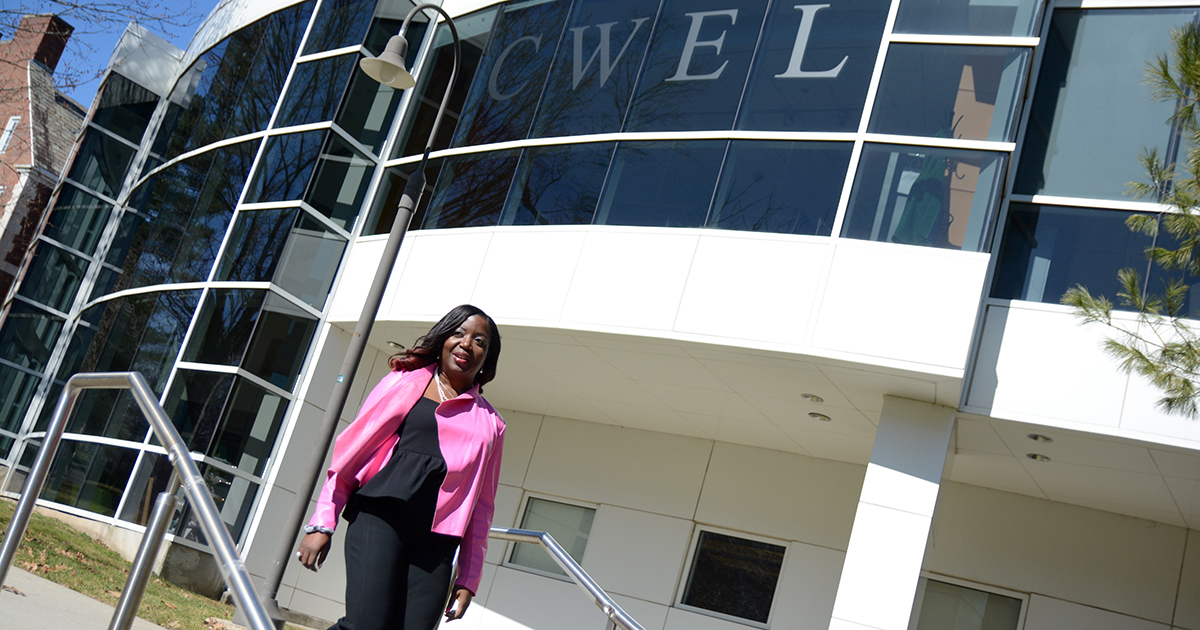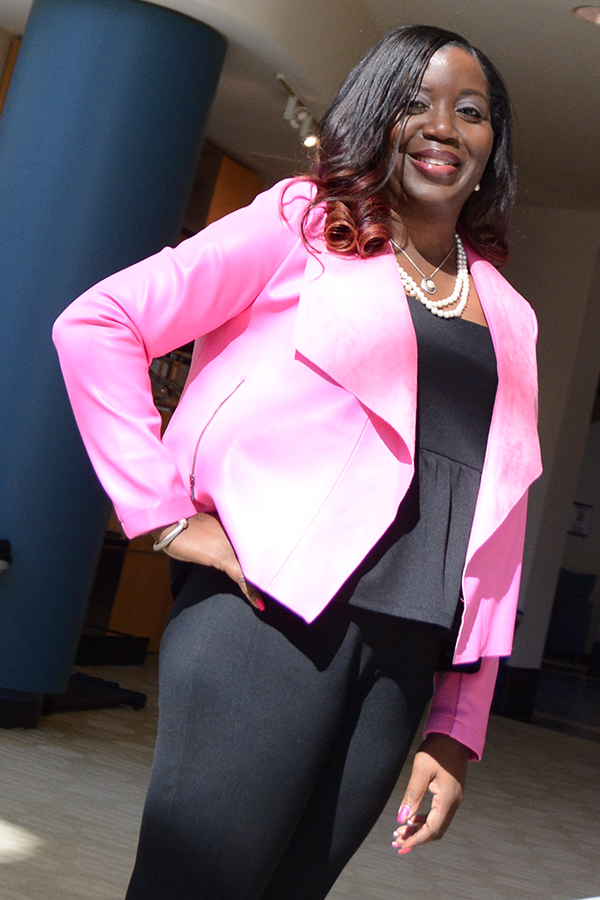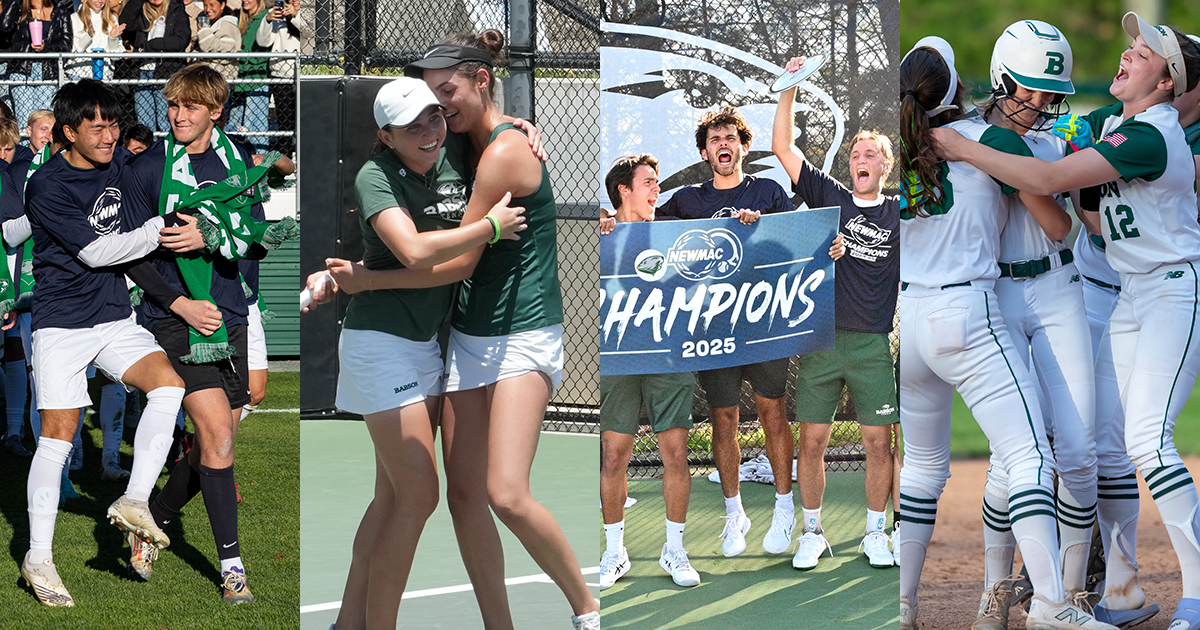Leading a Community of Women Entrepreneurs

Shakenna Williams ’94 learned many lessons from her father.
For starters, she learned the power of entrepreneurship. Her parents owned a large beauty supply distribution company, supplying all of the Northeast, and as Williams and her brother grew up in Springfield, Massachusetts, they spent every summer working in the business.
She learned the importance of a supportive network. When she began looking at colleges, her father took out a map and drew a circle. “You need to go to school within two hours from the house,” he told her. Then, he put a star next to Babson College, which he knew about from Eric Johnson ’72, P’08, whose father also was in the beauty industry.
And, she learned the real value of education. Her father agreed to pay for her to attend Babson as long as she maintained her grades. “I got my first ‘C,’ and my dad cut me off,” Williams said. “I had to beg financial aid to see how I could stay on campus. And, I had to be very entrepreneurial.” She worked on campus. She worked as a nanny. She worked full time in the summer. And, she earned an academic scholarship so she could stay—and eventually graduate on time.
“It was a great decision,” she said. “I’m glad I listened to my father, because I had no other choice.”
The lessons of her father and the experiences that followed now impact her work as the founder of Babson’s Black Women’s Entrepreneurial Leadership (BWEL) program and as the executive director of the Center for Women’s Entrepreneurial Leadership (CWEL) at Babson College.
Birth of BWEL
Williams returned to Babson in 2015 with an MBA and a doctorate, as well as experience in the corporate world (nearly nine years at Pfizer) and higher education (most recently at Bay Path University). She was looking to make a difference and apply everything she had learned.
She first served as the deputy academic director of the Goldman Sachs 10,000 Businesses program. Then, in 2018, became director of global initiatives at CWEL, where she oversaw the Women Innovating Now (WIN) Growth Lab and the Diana International Research Institute.
One of her first actions would lead to what just might be her lasting legacy.
“Babson has created something that is revolutionary. We’re creating this opportunity, this movement of change and empowerment.”
Shakenna Williams ’94, who founded the Black Women's Entrepreneurial Leadership program
In May 2019, she convened a conversation with a group of Black women—undergraduate and graduate students, alumni, successful entrepreneurs, senior leadership, and trustees—to discuss a program for Black women entrepreneurs. “It really opened our eyes to the possibility of what we could create here at Babson,” Williams said. “Access to entrepreneurship education is one of the key things that was lacking.”
With that, BWEL was born. Despite the challenges and uncertainty of the pandemic, the first cohort started in October 2020. Now, Williams and her team are assembling the fourth cohort of the program to begin in September.
Power of ‘Sisterhood’
Ask Williams about BWEL’s success stories, and she’ll tell you about Krystle Rodriguez, the owner of Hodgepodge Coffeehouse in East Atlanta, who never before created a pitch deck for her business. Through BWEL, she pitched her business to C200’s Champion Program and landed a featured spot on “Good Morning America,” where she was surprised with her acceptance and a $25,000 grant. “We were able to enhance what she already had inside of her to come out,” Williams said.

Another BWEL success Williams will tell you about is the human resources executive who left her corporate role to run her business full time. “She just needed that sisterhood, that encouragement,” Williams said. “I think about these women that just needed that support, the educational support from Babson, the coaching that we put in place.”
BWEL provides six months of business curriculum, delivered live online over 12 weekly sessions plus a one-day symposium, to Black women entrepreneurs who are looking to scale their companies. Perhaps just as important for participants is the one-on-one mentoring and peer coaching, as well as the cohort of other Black women entrepreneurs at similar stages. The program is aimed at entrepreneurs in business for at least 12 months with revenues between $24,000 and $300,000. “We’re creating a sisterhood that lasts beyond the cohort,” Williams said. “They’re going to continue to work together and encourage each other.”
The program is the first of its kind for Black women entrepreneurs at a four-year institution. “Babson has created something that is revolutionary,” Williams said. “We’re creating this opportunity, this movement of change and empowerment.”
Creating Communities
Williams expanded her role in August, taking over as executive director of CWEL. She still oversees BWEL—“my baby,” she calls it—and is working to create even more opportunities for all women, “particularly those that have been underrepresented.”
Williams says the biggest barriers for women entrepreneurs remain access to capital and access to entrepreneurship resources. With her experience supporting the Goldman Sachs program and building BWEL, she says CWEL is focused on building and enhancing inroads to improve access. “What CWEL is doing to make a difference is creating these communities,” Williams said. “What we do extremely well, working with Babson faculty and industry experts, is the educational part.”
CWEL continues to expand educational opportunities through its undergraduate and graduate programs, the Diana International Research Institute, the WIN Global Accelerator, WIN Growth Lab, and, of course, BWEL. Next, under Williams’ leadership, CWEL is launching a new podcast highlighting women entrepreneurs. And, it is planning a huge presence at Back to Babson, adding an extra day to the College’s annual alumni gathering to focus on women.
The power of entrepreneurship. The importance of a supportive network. The real value of education. Those are just some of her father’s lessons that have guided Williams and her career. She’s working to share them all in a book she is currently writing—Hooked: Entrepreneurial Leadership Skills Learned While Fishing with My Dad—that she plans to launch in September.
It will be just the latest achievement for Williams in a career that is as impactful as it is rewarding.
“I have to pinch myself,” she said, “just doing what I’m passionate about, that I’m willing to talk about and fight for every single day. I’m so grateful, and I’m honored.”
Posted in Community





